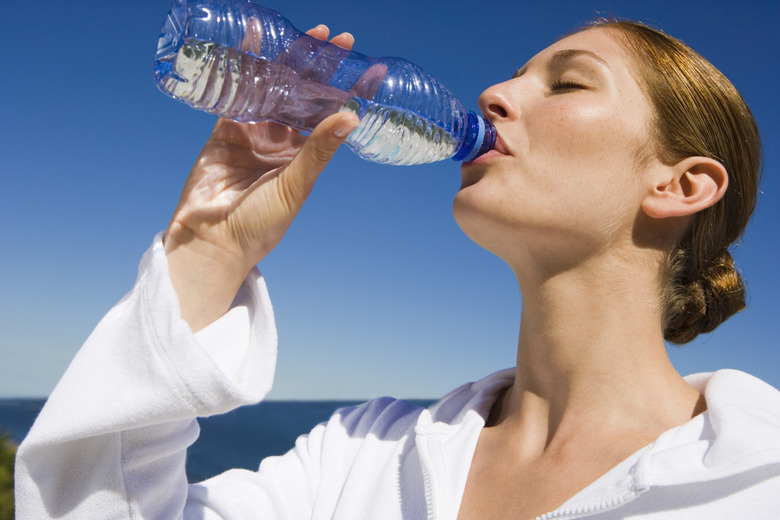How To Remove Algae From Drinking Water Bottles
Things Needed
-
Teaspoon
-
Measuring cup
-
Bleach
-
3 percent hydrogen peroxide
-
Bathtub faucet or pitcher
-
Bottle brush or other brush
Warning
Do not allow bleach to get on your skin, and do not breathe in the fumes.
Drinking water bottles made of lightweight plastic should be recycled after only a few uses. These typically have the recycling number 1 or 2 on the bottom. Hard plastic water bottles, on the other hand, can be used over and over. These include reusable 1- to 5-gallon jugs as well as sports bottles, which typically have a lid with an attached straw. Occasionally you may encounter some algae growth that you'll need to remove.
Step 1
Add 1 tsp. bleach to 1 c. of water. If you have a 5-gallon bottle, you may want to double or triple this formula. You also can add 3 tsp. of 3 percent hydrogen peroxide mixed into a cup of water instead of bleach. Do not mix bleach with hydrogen peroxide.
Step 2
Pour the solution into the water bottle. Cover the bottle and swish the solution around so it coats the entire interior.
Step 3
Fill the bottle with hot water. If you have a 5-gallon bottle, you may need to fill it in the bathtub or with a pitcher.
Step 4
Allow the bleach solution to stand for 30 minutes. If you're using hydrogen peroxide, allow it to stand for 1 hour.
Step 5
Empty the bottle and rinse it with tap water until any bleach or hydrogen peroxide odor is gone.
Step 6
Scrub the bottle interior if soaking it did not work. Add another cup of bleach and water, or hydrogen peroxide and water, to the bottle's interior and swish it around. Then use a bottle brush or any other long-handled brush you can get inside to reach the algae.
Step 7
Rinse the bottle out well again. Allow it to dry before re-capping. Place the bottle in the sun to dry if possible, as sunshine has disinfectant properties.
